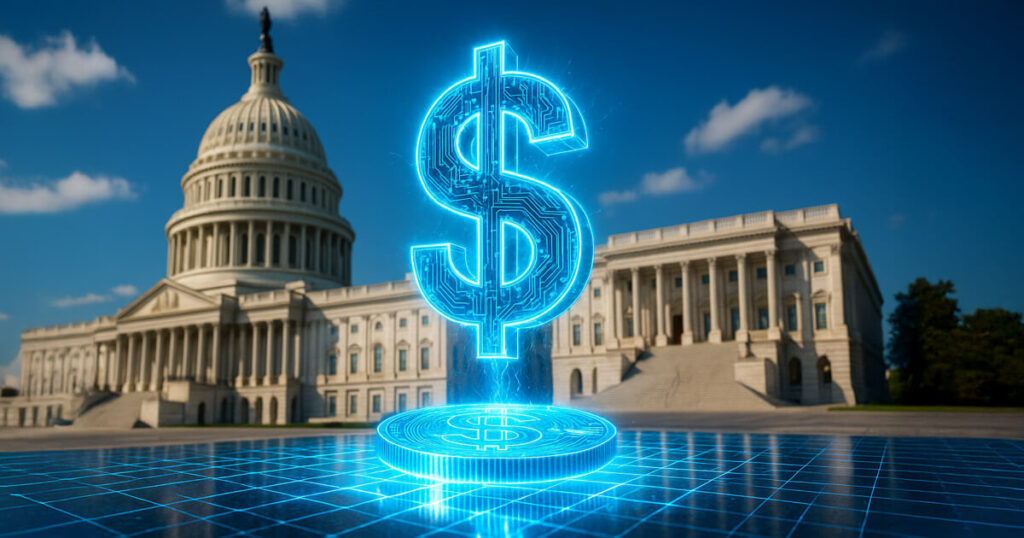Senate Republicans are making significant strides towards passing the GENIUS stablecoin bill, aiming to secure a floor vote before the Memorial Day recess. Majority Leader John Thune has expedited consideration of the Guiding and Establishing National Innovation for U.S. Stablecoins (GENIUS) Act, with a potential chamber-wide decision expected as early as May 20.
The GENIUS Act, which garnered bipartisan support in the Senate Banking Committee in March, aims to establish a regulatory framework for payment stablecoins. The bill would require stablecoins to be backed 1:1 with cash or Treasuries and mandate monthly attestations. Additionally, large issuers would fall under Federal Reserve oversight, while smaller players would have state-level pathways for compliance.
Supporters of the bill, including Senators Bill Hagerty, Cynthia Lummis, and Tim Scott, argue that it is essential to maintain the dollar’s dominance and bring clarity to regulatory standards in the crypto space. Hagerty emphasized the importance of passing the GENIUS Act to support digital asset innovation in the United States while protecting consumers and ensuring a level playing field for foreign companies.
The rapid growth of stablecoins, with a total market capitalization exceeding $241 billion, has underscored the need for clear regulatory guidelines. Industry leaders like Tether and Circle dominate the stablecoin market, and backers of the GENIUS Act believe that legal clarity will help anchor global crypto markets and bolster U.S. debt demand through reserve holdings.
However, opposition to the bill has emerged from progressive Democrats like Senator Elizabeth Warren, who raised concerns about the potential for big-tech companies to issue their own stablecoins under the proposed framework. A coalition of community banking organizations has also expressed worries about the impact of stablecoins on traditional deposits and the stability of the financial system.
The path forward for the GENIUS Act remains uncertain, as Republicans will need Democratic support to advance the bill. While the measure received bipartisan backing in the Senate Banking Committee, Democrats remain divided on the issue. Lawmakers like Kirsten Gillibrand and Mark Warner, who have shown openness to stablecoin regulation in the past, will play crucial roles in the decision-making process.
If the GENIUS Act clears the Senate, differences with the House version could prolong the legislative process. The House Financial Services Committee has a parallel bill with stricter disclosure requirements, and reconciling the two versions may prove challenging. Federal Reserve officials have expressed support for stablecoin oversight, emphasizing the importance of regulating both banks and non-bank entities issuing digital tokens.
As the Senate gears up for a crucial vote on the GENIUS stablecoin bill, the outcome will have far-reaching implications for the future of stablecoin regulation in the United States. Lawmakers are facing the challenge of bridging partisan and industry divides to establish a national framework for stablecoin governance.

